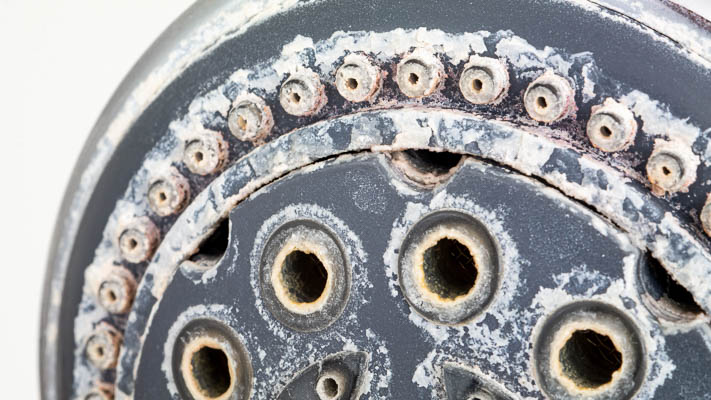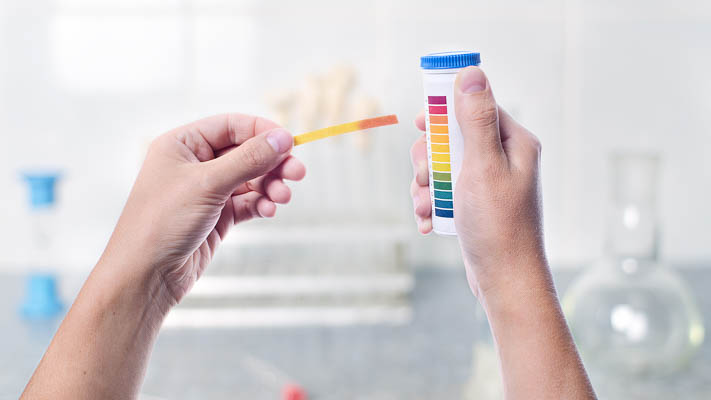What Is the Difference Between Acidic and Alkaline Water?
Alkaline and acidic water have very distinct properties. We have made it easy for you by breaking them down:
Alkaline Water
Alkaline water has a higher pH level than regular drinking water. The pH scale, which ranges from 0 to 14, measures how acidic or alkaline a substance is. Pure water has a neutral pH of 7. Alkaline water typically has a pH of 7 or higher.
It often contains minerals like calcium, potassium, and magnesium, which can be added or naturally occurring. These minerals can contribute to the water's smoother and less bitter taste compared to regular water. Natural sources of alkaline water include springs and wells in areas with high mineral content.
Acidic Water
On the other hand, Acidic water has a lower pH level than neutral water. This means it has a pH below 7, typically around 6.5 or lower.
It can have a slightly sour or metallic taste due to the higher concentration of hydrogen ions. Unlike alkaline water, acidic water does not typically contain minerals such as calcium, potassium, or magnesium.
Is Water Hardness the Same as pH Levels?
Water hardness and pH level each measure different aspects of water quality.
Water hardness refers to the concentration of dissolved minerals, primarily calcium and magnesium, in the water. We have a detailed article that outlines what is hard water.
However, these properties can sometimes overlap and influence each other because the presence of minerals (which contribute to water hardness) can also affect the pH level.
For example, hard water, which has high levels of calcium and magnesium, is often alkaline because of its high mineral content. In contrast, soft water, with lower mineral content, tends to be neutral or slightly acidic.
How to Test for Acidic and Alkaline Water
There are several easy methods you can use to test the pH of water:
- pH Test Strips: pH test strips are paper strips impregnated with pH-sensitive dyes. When dipped into water, the color of the strip changes based on the pH level, allowing you to match it to a color chart. These test strips provide a rough estimate of the pH level and are suitable for home use but may not be as precise as other methods.
- Liquid pH Test Kits: Liquid pH test kits typically contain pH indicator solution and a color chart. A few drops of the indicator solution are added to a water sample, and the resulting color is compared to the chart to determine the pH.
- pH Meter: A pH meter is a digital device equipped with a probe that measures the electrical potential difference between two electrodes when immersed in water. This reading is converted into a pH value displayed on the meter's screen. pH meters are often more expensive than test strips due to their higher level of accuracy.
You can easily buy test strips or liquid pH test kits online or at local home improvement stores.
Can Acidic and Alkaline Water Damage Plumbing?
The pH level of water, whether acidic or alkaline, can have a significant impact on your home's plumbing system.
Acidic water can be especially corrosive to plumbing systems. This is particularly common with metal pipes such as copper pipes and galvanized steel. Higher concentrations of dissolved carbon dioxide can react with the metals in pipes and fixtures. Over time, this corrosion can lead to issues such as copper pinhole leaks, reducing the integrity of the plumbing system.
Alkaline water is generally less corrosive than acidic water, but it can still affect plumbing systems, particularly if the water is very high in mineral content.

The minerals present in alkaline water can form scale deposits on the inside of pipes and on fixtures. This buildup can interfere with the functionality and lifespan of a home's plumbing and water appliances, including water heaters, dishwashers, and washing machines.
Regular monitoring of your home's plumbing is essential in addressing potential issues early and ensuring the longevity of your plumbing infrastructure.
How to Stop the Affects of Acidic and Alkaline Water
When dealing with the effects of acidic and alkaline water on plumbing systems, repiping with suitable materials can be an effective long-term solution.
PEX tubing is the most effective repipe material when it comes to minimizing the effects of alkaline and acidic water on plumbing systems. PEX tubing offers several key advantages:
Repiping With PEX
- Corrosion Resistance: PEX pipes are highly resistant to corrosion, making them an ideal choice for plumbing systems exposed to acidic water. Unlike traditional metal pipes, such as copper or galvanized steel, PEX does not react with acidic water, preventing the formation of pinhole leaks and ensuring long-term durability.
- Scaling Prevention: While alkaline water can lead to mineral scaling in pipes, PEX is more resistant to scale buildup in comparison to metal pipes due to its smooth interior surface. This helps maintain consistent water flow and prevents clogs and reduced water pressure commonly associated with alkaline water. (Note: All pipe materials are affected by hard water, including PEX. However, PEX generally demonstrates greater effectiveness against scale buildup.)
- Flexibility and Versatility: PEX pipes are flexible and can be easily bent and maneuvered around obstacles during installation, reducing the need for additional fittings and joints. This flexibility also minimizes the risk of leaks and failures at connection points, ensuring a more reliable plumbing system.
- Longevity and Low Maintenance: PEX pipes have a long service life and require minimal maintenance compared to other materials. Their resistance to corrosion and scaling means they are less prone to degradation over time, reducing the need for costly repairs and replacements.
- Cost-Effectiveness: Repiping with PEX can be cost-effective compared to materials like copper. PEX pipes are generally more affordable, and their ease of installation can lower labor costs, resulting in overall savings for homeowners. We have an article that breaks down the cost of repiping with PEX. By investing in a PEX repipe, you can enjoy reliable plumbing systems that can withstand the challenges posed by both acidic and alkaline water.
Get your free estimate today
With over 75,000 repipes completed, we've perfected our One-Stop Repipe™ for your home.
Get a Quote for Repiping Your Home
Here at Repipe Specialists, we've fully replaced plumbing in thousands of homes across the USA with modern Uponor PEX tubing. We continually get positive customer feedback from customers about their whole home repipe experiences. We often exceed their expectations on:
- Speed: Our repipe crews typically complete a repipe in a day, returning on another day for wall patching.
- Convenience: Through our One-Stop Repipe™ Process, we handle everything from permits, to wall patching, to inspections.
- Cleanliness: Our crews are trained to protect your home while working (we cover all surfaces with protective sheeting), and to clean up fully at the end of each day.
- Peace of Mind: Repipe Specialists is a fully licensed plumber in every state we operate in, and we back all of our repipes with a lifetime warranty.
- Financing programs: To help take the sting out of unplanned repipe expenses, we offer several financing programs.
- Price: As a specialist that performs hundreds of repipes a week, we can deliver high-quality repipes at a lower cost vs generalist plumbers. We have an article that covers repipe cost factors in detail. Our quotes typically range from $4,500 to $15,000 depending on the size and complexity of your project.
Schedule a free in-home consult, and one of our local repipe consultants will explain all your repipe options and provide you with a written, fixed-price quote. Tackle alkaline and acidic water head-on, repipe with PEX.

